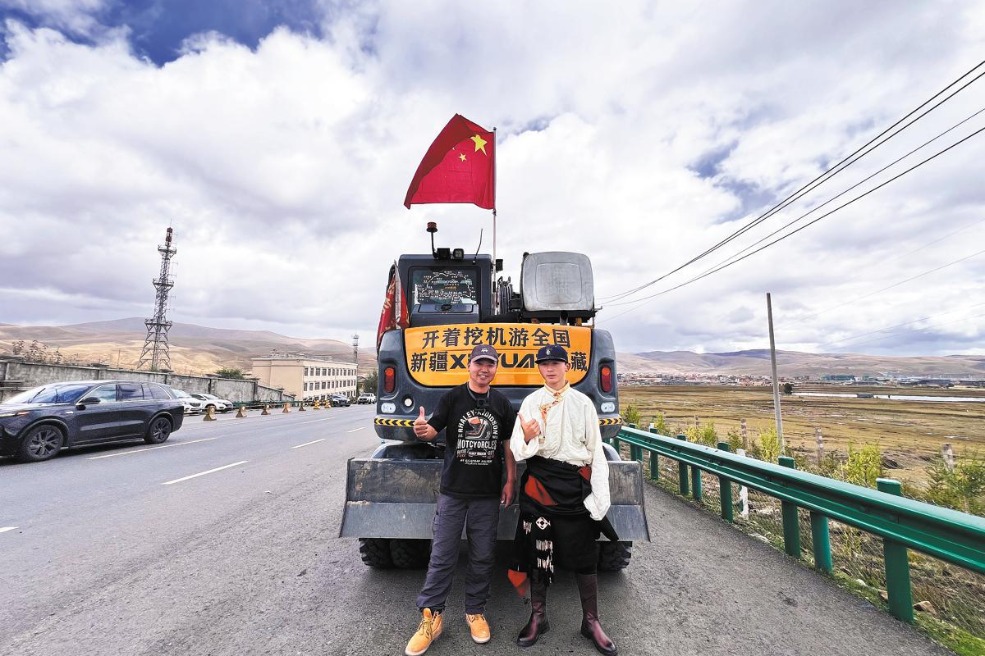Xi stresses promoting equipment renewal, trade-in of consumer goods, lowering logistics costs

BEIJING -- Chinese President Xi Jinping, also general secretary of the Communist Party of China (CPC) Central Committee, chairman of the Central Military Commission and director of the Central Commission for Financial and Economic Affairs (CCFEA), presided over the fourth meeting of the CCFEA on the afternoon of Feb 23. The meeting was held to discuss issues of large-scale equipment renewal and trade-in of consumer goods, as well as the issue of effectively lowering logistics costs in the whole society. Xi made an important speech, stressing that speeding up product upgrading is an important measure for promoting high-quality development, and that efforts should be made to encourage and guide a new round of large-scale equipment renewal and trade-in of consumer goods. Logistics serves as "arteries and veins" of the real economy, linking production and consumption as well as domestic and foreign trade. It is essential to effectively lower logistics costs in the entire society, boost the core competitiveness of industries, and improve the efficiency of the economy.
Present at the meeting were Li Qiang, a member of the Standing Committee of the Political Bureau of the CPC Central Committee, Chinese premier and deputy director of the CCFEA, Cai Qi, a member of the Standing Committee of the Political Bureau of the CPC Central Committee, a member of the CPC Central Committee Secretariat and a member of the CCFEA, and Ding Xuexiang, a member of the Standing Committee of the Political Bureau of the CPC Central Committee, Chinese vice premier and a member of the CCFEA.
The meeting heard reports from the National Development and Reform Commission, the Ministry of Commerce, and the Ministry of Industry and Information Technology concerning large-scale equipment renewal and trade-in of consumer goods. It also heard reports from the National Development and Reform Commission, the Ministry of Transport, and the Ministry of Commerce on lowering logistics costs in the whole society. Written reports were submitted by the Ministry of Housing and Urban-Rural Development, the State Administration for Market Regulation, and China State Railway Group Co Ltd.
It was stressed at the meeting that large-scale equipment renewal and trade-in of old consumer goods will effectively boost investment and consumption, benefiting economic and social development not only for the time being but also in the long run. A combination of policies should be employed to ensure that the proportion of advanced production capacity continues to increase, that more high-quality durable consumer goods enter people's lives, that waste resources are recycled, and that the quality and level of national economic flows are significantly improved. It is essential to uphold the principle that market plays the principal role and government provides guidance. The advanced must be encouraged while the backward eliminated, and standards must be abided by to regulate the development of industries, whose upgrading should be promoted in an orderly manner.
It was noted at the meeting that it is necessary to promote the upgrading and technological innovation of various production equipment and service equipment, encourage the trade-in of traditional consumer goods such as automobiles and home appliances, and promote that of durable consumer goods. Large-scale recycling should be promoted, and efforts should be made to boost the development of a new logistics system that combines trade-in and recycling. As far as trade-in of consumer goods is concerned, the central financial authorities should coordinate with local governments, and support all links in a coordinated manner, so that consumers will get more benefits.
It was stressed at the meeting that reducing logistics costs is an important measure to improve the efficiency of the economy. The fundamental purpose of reducing logistic costs is to serve the real economy and the people, the basic prerequisite is to keep the share of manufacturing in the economy largely stable, and the main pathway is to promote structural adjustments, carry out reform, and effectively lower the costs of transportation, storage and management. It is imperative to optimize the transportation structure by enhancing the shift in the transportation of bulk goods and medium and long-distance freight from highways to railways and waterways, and deepening the comprehensive transportation system reform, so as to develop a unified, highly-efficient, competitive and orderly logistics market. Major transportation routes and corridors should also be optimized to unclog bottlenecks and improve the modern commercial distribution system. In addition, it is important to encourage the development of new logistics models integrated with the platform economy, low-altitude economy and unmanned driving, etc. It is essential to make coordinated planning of logistics hubs, optimize the construction of transportation infrastructure and the layout of major productive forces, and boost economic activities associated with airports and ports.
Members of the CCFEA attended the meeting, and leading officials of central Party and state departments sat in on the meeting.
- Train attendants gear up for Spring Festival travel rush
- World's largest pile-driving vessel delivered in East China
- China to have national data infrastructure in place by 2029
- Top court pledges punishment of unfair competition, monopoly in high-tech fields
- China launches communications center to spotlight wild tiger, leopard protection
- China launches test satellite for orbital refueling





































